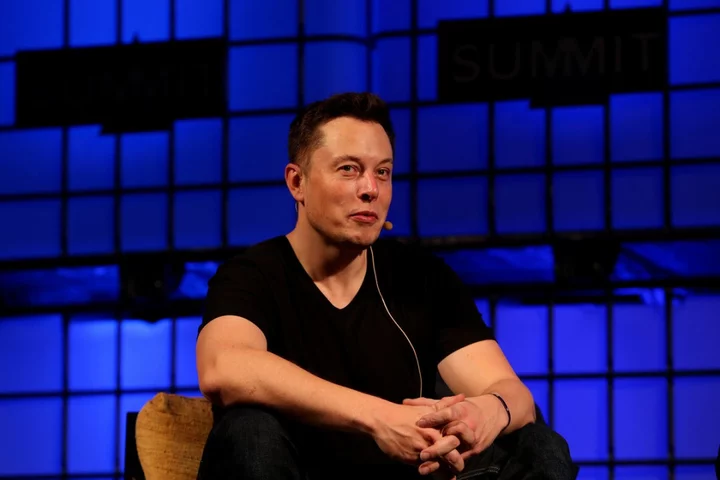
Elon Musk was on brink of death after catching malaria on South African safari, book claims
Elon Musk contracted malaria while on safari in South Africa in 2000 and almost died, a new biography has claimed. Walter Isaacson detailed the billionaire’s near-death experience in a new biography published this week. Mr Musk contracted malaria during a holiday in South Africa after being ousted as CEO of PayPal by Peter Thiel in October 2000. It was Mr Musk’s first time back in his native South Africa since leaving for Canada aged 17, Mr Isaacson wrote. During his trip, Mr Musk and his then-wife Justine Musk went to a game reserve. When he returned to California in January 2001, Mr Musk reportedly began to feel dizzy and experienced recurring waves of chills and started throwing up in an emergency room, leading to him being wrongly diagnosed with viral meningitis. The billionaire’s condition worsened until his “pulse was barely perceptible,” according to the book. Mr Musk was only diagnosed with malaria after a doctor with expertise in infectious diseases passed by his bed at Sequoia Hospital in Redwood City and realized he had a potentially fatal form of the disease that can affect the central nervous system or cause “acute respiratory distress,” according to the Centers for Disease Control and Prevention. Mr Isaacson described how it took Mr Musk five months to fully recover after he was put in intensive care for 10 days and treated with doxycycline and chloroquine. An email written by the head of human resources at X.com — later Paypal — to Mr Musk’s former business partners Peter Thiel and Max Levchin described how he was “actually only hours from death,” the biography revealed. The Tesla CEO’s mother Maye Musk described the ordeal as “terrifying”. “I remember your malaria infection very clearly. You were unconscious, yellow and shivering for days. Tubes were going in and out of you. It was a terrifying time. Modern medicine saved you,” she wrote on X, formerly known as Twitter. While he was in hospital, Mr Musk’s then-colleagues found he’d taken out a life insurance policy worth $100 million on behalf of X.com. “If he had died, all of our financial problems were going to be solved,” Mr Thiel reportedly told Isaacson. Mr Musk told Isaacson: “Vacations will kill you. Also, South Africa – that place is still trying to destroy me.” The tech mogul co-founded online bank X.com in 1999. The company merged with another payment system, Confinity, which was co-founded by Thiel and Levchin, and was renamed PayPal. Isaacson was given access to the Tesla and SpaceX CEO over the past two years, which culminated in Mr Musk’s biography being published this week. The writer spoke with several figures close to Mr Musk while writing the biography, including his ex-girlfriend Grimes and his former wives Tallulah Riley and Justine Musk, as well as his estranged father. So far, the book has also claimed Musk and Grimes secretly welcomed a third child, in addition to X and their 22-month-old daughter Exa Dark Sideræl. However, it was not immediately clear when their second son, named Techno Mechanicus or “Tau”, was born. In the biography, Isaacson also writes that the tech mogul’s brother Kimbal Musk and his friends “hated” ex-girlfriend and actor Amber Heard so intensely, it “made their distaste for Justine [Musk’s first wife] pale”. One review by The New York Times said Isaacson’s biography stitches together a portrait of a Mr Musk as a “mercurial ‘man-child’”. Read More Grimes says Elon Musk was ‘clueless’ about why she was upset by C-section photo Elon Musk ‘hardly remembers’ his own ‘demon-like’ episodes, biographer claims Book Review: 'Elon Musk' offers a revealing but not surprising portrait of tech mogul Elon Musk makes prediction for imminent Starship launch Twitter rival Bluesky hits new milestone Putin praises Musk days after report Tesla boss stopped Ukrainian attack
2023-09-14 01:18

'Earthquake lights' video seen moments before Morocco tragedy fuel age-old theory
With the tragedy and horror wreaked in Morocco last week, it's unsurprising that people’s focus hasn’t been on the skies. And yet, Friday’s devastating earthquake, has also sparked renewed interest in a mysterious aerial phenomenon. Footage shared to social media just moments before the 6.8-magnitude tremor struck the High Atlas mountains appears to show blinding lights flashing across the sky. Experts have suggested that the jaw-dropping sight is evidence of an enigmatic natural occurrence called “earthquake lights”. Reports of these bright flashes go back centuries. And yet, very little is known about them, to the point that scientists aren’t even sure they’re real. Indeed, some experts have concluded that there isn’t sufficient proof to support their existence, the United States Geological Survey notes. Nevertheless, “people have wondered about them forever," Karen Daniels, a physicist at North Carolina State University, told the New York Times. "It's one of those persistent mysteries that hang around and never quite get nailed." The issue with studying earthquake lights is that since earthquakes are impossible to predict, so are any preceding celestial pyrotechnics. Not knowing when or where they will occur means researchers can’t preemptively install the necessary equipment needed to detect them. Essentially, the only evidence we have comes from eyewitness accounts and, more recently, video recordings. And there is an abundance of the former, with a 2014 study noting that aerial luminous phenomena were reported in relation to 65 earthquakes which occurred in Europe and America over a period of 200 years. These descriptions of earthquake lights vary in their details, with some recalling on-and-of lightning-style flashes, and others minutes-long glows of different colours. “All of these have been reported by observers,” John Ebel, a seismologist at Boston Collegel told the NYT. “Which ones are actually true, and which ones are products of their imagination, we can’t really say.” One theory behind the formation of earthquake lights is that they are the result of friction between tectonic plates generating electricity. However, most experts are unconvinced by this hypothesis, including Dr Daniels. She told the NYT: “Rock on rock is not a situation where people have been able to generate large charge separation. And so it just doesn’t seem like a very good explanation for what people see.” Other scientists have suggested electrical arcing from power lines shaken by earthquakes could be responsible for the sky flares. But Dr Daniels acknowledged it’s still possible that there’s no link at all between the lights and tectonic events. “We’re comforted by things that we can understand, and we’re scared by things we don’t,” she pointed out. “I think that’s part of the reason we’re so fascinated by this phenomenon.” Sign up for our free Indy100 weekly newsletter Have your say in our news democracy. Click the upvote icon at the top of the page to help raise this article through the indy100 rankings.
2023-09-13 21:59
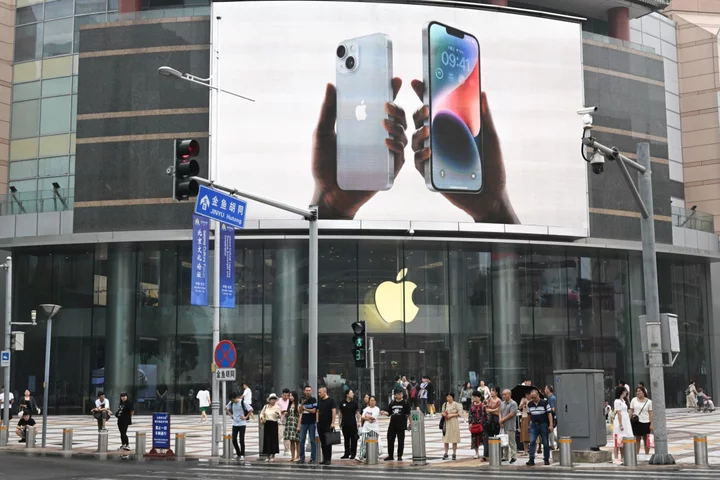
China Flags ‘Security Incidents’ With Apple’s iPhones
China flagged security problems with iPhones while saying it isn’t barring purchases, the government’s first comments on the
2023-09-13 17:17
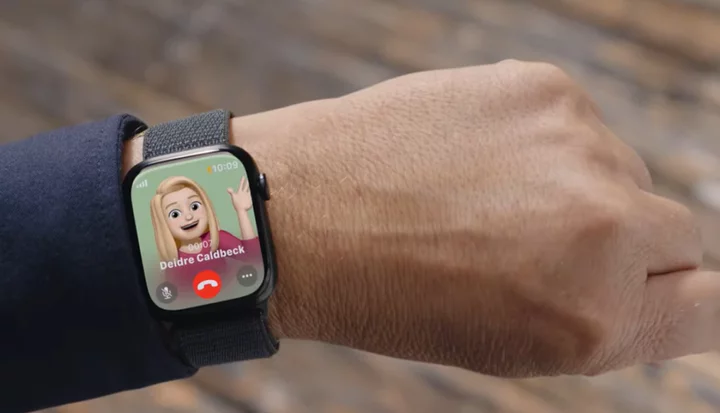
Apple to stop using leather in iPhone, Apple Watch and all new products
Apple will stop using leather, it has announced. It will offer no new products using materials taken from animals, it said. That includes iPhone cases and Watch bands, both of which make heavy use of leather. Lisa Jackson, Apple’s vice president of environment, policy and social initiatives, noted that leather is a popular material for accessories. But it has considerable environmental impact, she noted, especially at the scale that Apple uses it. As such, it has committed to phasing out those materials. Instead, it will rely on new materials that have been especially developed. For the Apple Watch’s sport loop, for instance, it has changed the material to use 82 per cent recycled yarn. For the straps that are currently made out of leather, it will rely on a new seemingly custom developed material called “FineWoven”. That will presumably also be used for the cases made for the new iPhone 15. And Apple has developed new straps with Nike and Hermès. The latter collaboration has relied heavily on leather – but recently Apple has been rumoured to be selling off those products cheaply. The new materials will help make the new Apple Watch Series 9 the first carbon neutral product the company has made. Read More Apple to stop using leather in all new products Apple is changing the plug on the bottom of your iPhone Here’s the new iPhone Pro, made out of an entirely new material
2023-09-13 15:27

iPhone 15 Pro: Apple reveals premium phone with brand new material and features
Apple has unveiled the new iPhone 15 Pro, with an entirely new material. The new device will be made out of titanium, and rely on a host of new manufacturing processes. Its new material and design allows it to be the lightest Pro phone Apple has made, and includes the thinnest edges around the display. As well as the titanium, the new phone has the toughest glass-based material in the industry and an aluminium structure inside the phone, with the two materials joined in a new way that should make the phone extra strong, Apple said. The glass is now much easier to replace, Apple said. The iPhone 15 Pro comes at the same price as the previous pro model, at $999. The iPhone 15 Pro Max will be slightly more, starting at $1,199, though Apple stressed the price increase comes with more storage. :: Follow our coverage of the Apple event here. It comes in two sizes, 6.1-inches and 6.7-inches. And it comes in four new colours: black, white, blue and a natural titanium. The titanium itself is a “grade five” alloy, Apple said, the same material used on the Mars rover. The new material also brings a new look, with a brushed texture on the side of the phone. As well as the new material, the iPhone 15 Pro brings a new customisable “action button” on the side of the phone, and an improved “A17 Pro” chip inside it. The action button replaces the mute switch on the side of the phone, and does the same job by default. But it can be changed to start voice memos, open the camera – or to start complex processes, by using Apple’s Shortcuts app. The new chip has “next-level performance”, Apple said, with improvements including dramatically improved graphics performance. Apple claimed the device is a “new chapter in iPhone performance”, and it focused particularly on the gaming performance that the new chip will allow. The iPhone 15 Pro has “the equivalent of seven camera lenses”, Apple said, even though it retains the three visible lenses on the back of the phone. That is partly because the iPhone 15 Pro Max has a 5x optical zoom, by using the extra space in the bigger device as well as a “tetra prism” design that bounces light around in the phone. The new camera also has a new coating to reduce lens flare, and better performance in low light. Like the normal iPhone 15, it has a 48 megapixel camera but offers the option to merge that down into a 24 megapixel image, which Apple said should allow for better quality and high resolution images. The iPhone 15 Pro is also able to stitch together images from two of the lenses to capture spatial video, which can later be viewed in the Vision Pro headset. At the time of the release of that headset, some had expressed concern that people would be forced to put those headsets on to take the new kinds of videos. Like its cheaper iPhone 15 sibling, the 15 Pro will also be the first phone to switch to a USB-C charging port to charge. In the Pro model, that allows for USB 3 speeds, Apple said. Read More Apple to stop using leather in all new products Apple is changing the plug on the bottom of your iPhone Here’s the new iPhone Pro, made out of an entirely new material Apple reveals when huge new iPhone update is coming Everything Apple just announced at its huge ‘Wonderlust’ event Here is the iPhone 15
2023-09-13 15:25
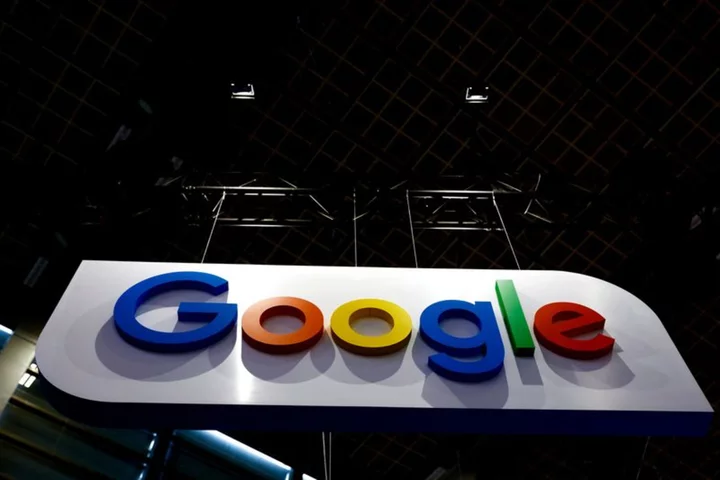
Google argues quality kept its search on top, defends billions paid
By Diane Bartz WASHINGTON Google argued on Tuesday the U.S. was wrong to say the search and advertising
2023-09-13 05:50
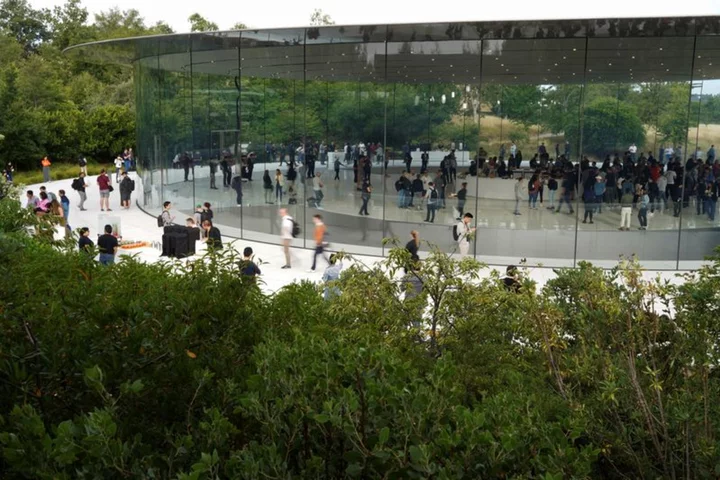
Apple's plan for climate-friendly watches: Clean energy in factories
By Stephen Nellis CUPERTINO, California (Reuters) -Apple on Tuesday said that three of its Apple Watch models will come in
2023-09-13 03:51
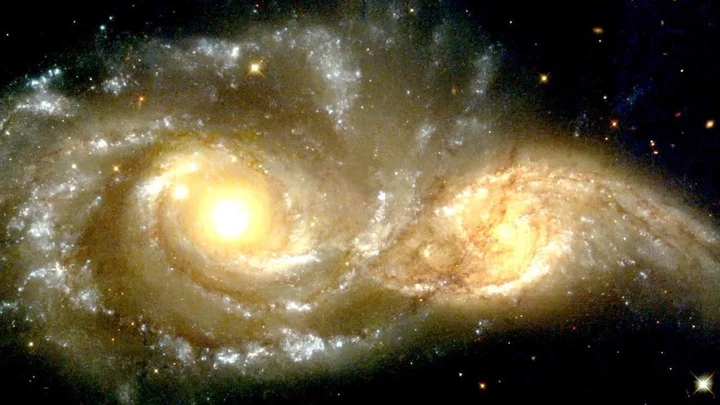
Scientists discover new Black holes that could be creeping up on Earth
A new study has revealed that black holes could be lurking much closer to Earth than anticipated. A black hole in space is when "gravity pulls so much that even light can not get out," NASA explains. "The gravity is so strong because matter has been squeezed into a tiny space. This can happen when a star is dying." Due to no light being present, they are invisible. Only special tools can pick up on them. There are said to be around 10 million to 1 billion mass black holes in the Milky Way, according to Science Alert. However, astrologers only know of about 20 of them. Now, a recent study has revealed that they could be a lot closer to Earth than previously thought after investigating the Hyades cluster, "a group of stars located 150 light-years away". In a statement, astrophysicist Stefano Torniamenti of the University of Padua explained: "Our simulations can only simultaneously match the mass and size of the Hyades if some black holes are present at the centre of the cluster today (or until recently). The Hyades with hundreds of stars is said to be approximately 625 million years old. Due to its packed environment, "higher rates of collisions and mergers" are expected. At 153 light-years away, it is considered the closest star cluster to Earth. Researchers were able to observe two or three black holes in the Hyades, which are either still present or ejected less than 150 million years ago and hovering around the outskirts. "This observation helps us understand how the presence of black holes affects the evolution of star clusters and how star clusters in turn contribute to gravitational wave sources," Professor Mark Gieles of the University of Barcelona said. Sign up for our free Indy100 weekly newsletter Have your say in our news democracy. Click the upvote icon at the top of the page to help raise this article through the indy100 rankings.
2023-09-12 22:56
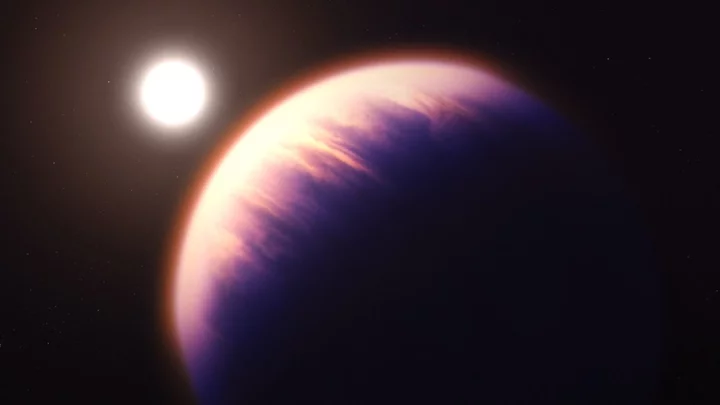
Scientists discover huge exoplanet 120 light years from Earth that ‘could contain signs of life’
An exoplanet more than eight times the size of Earth and potentially habitable has been discovered by scientists. Exoplanet K2-18 b was detected by NASA’s James Webb Space Telescope and piqued scientists’ interest after data suggested it may be covered in an ocean and have a hydrogen-rich atmosphere that could support life. Scientists are also encouraged by a hint of the detection of the molecule dimethyl sulphide (DMS). On Earth, DMS is only produced by microbial life, but the team has yet to confirm the detection and search for evidence of biological activity. The groundbreaking discovery of K2-18 b may see the exoplanet come under the unique classification of a “Hycean” planet – ones which are candidates for life thanks to their hydrogen-rich atmospheres and water cover. The amount of methane and carbon dioxide combined with the shortage of ammonia suggests there may be a water ocean underneath a hydrogen-rich atmosphere in K2-18 b. K2-18 b lies within the constellation of Leo and orbits a dwarf star called K2-18. It lies around 120 light years away from Earth and is within the habitable zone. However, scientists added that this does not necessarily mean it can support life. Nikku Madhusudhan, an astronomer at the University of Cambridge and lead author of the paper, explained: “Our findings underscore the importance of considering diverse habitable environments in the search for life elsewhere. “Traditionally, the search for life on exoplanets has focused primarily on smaller rocky planets, but the larger Hycean worlds are significantly more conducive to atmospheric observations.” Sign up to our free Indy100 weekly newsletter Have your say in our news democracy. Click the upvote icon at the top of the page to help raise this article through the indy100 rankings.
2023-09-12 17:22
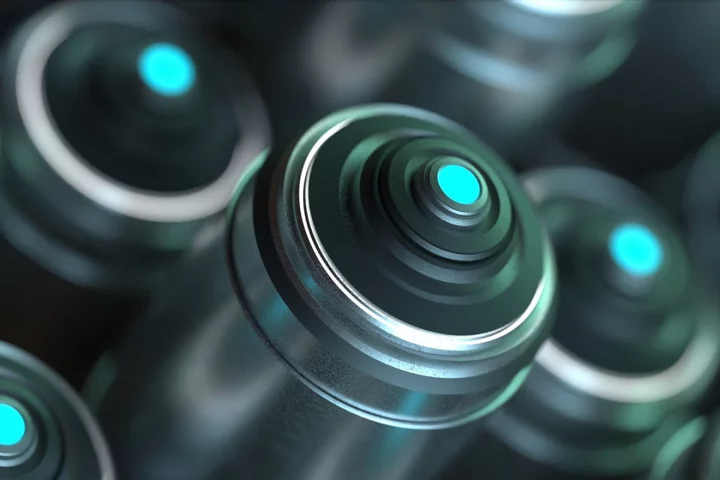
New invention could herald ‘battery revolution’, scientists say
Researchers have invented a new battery that they claim could have profound implications for the future of energy storage and renewable technologies. The lithium-based redox-flow battery, developed by a team at the University of Cincinnati, could prove crucial for wind and solar operations, where large-scale batteries are needed to store energy during times of overproduction and release it when production drops off. “Energy generation and energy consumption is always mismatched,” said Jimmy Jiang, who led the research at the University of Cincinnati. “That’s why it’s important to have a device that can store that energy temporarily and release it when it’s needed.” The novel design removes the membrane that separates the positive and negative sides of the battery, which is one of the most expensive parts of this type of battery and has previously hindered development. The membrane-free battery exhibited high voltage and energy density that could potentially meet the demands of large-scale green energy operations at an economically viable cost for the first time. “This design significantly decreases material costs,” said Soumalya Sinha, a visiting professor at the University of Cincinnati who was involved in the research. “We’re trying to achieve the same performance at a cheaper cost.” The team has submitted patent applications for the design, which Dr Jiang said will herald a “battery revolution” within the next 20 years. “I am confident about that,” he said. “There is a lot of intense research going into pushing the boundaries of battery performance.” The research was detailed in a paper, titled ‘Development of high-voltage and high-energy membrane-free nonaqueous lithium-based organic redox flow batteries’, published in the journal Nature Communications. Read More Volcano discovery could power electric cars for decades, scientists say
2023-09-12 03:57

AI is using vast amounts of water
Artificial intelligence is using gallons upon gallons of water. Microsoft alone used more than 2,500 Olympic-sized swimming pools of water in its data centres last year. The latest numbers are leading to yet more questions about the sustainability and environmental dangers of the growth of artificial intelligence and related technology. Artificial intelligence requires vast computing resources, undertaking deeply complex calculations on behalf of people around the world. AI systems tend to be run in the cloud rather than on individual people’s computers, meaning that companies running them must operate vast server farms to deal with the queries of their users. Those server farms in turn need to pump in water to cool themselves down, because of the heat generated by those computers. That has long been a concern for environmentalists, but the sharp growth in artificial intelligence has led to even more use. Microsoft’s water consumption rose 34 per cent between 2021 and 2022, according to its latest environmental report, highlighted by the Associated Press. It was up to almost 1.7 billion gallons. Not all of that is from artificial intelligence. But Shaolei Ren, a researcher at the University of California, Riverside working to better understand the environmental impact of AI told the AP that the “majority of the growth” is because of the technology. Google also said that its water use had increased by 20 per cent over the same period. That varied across its different data centres, which are based in different parts of the US. For each 5 to 50 prompts, or questions, put to ChatGPT, it uses 500 millilitres of water, according to a paper that will be published by Professor Ren and his team later this year. Many technology companies have expressed concerns about their own water use, and how to minimise any negative effects of their data centres. The environmental concerns can be especially pressing because the use of water can be focused in particular areas around a data centre, meaning that the damage may not be spread. Google said last year for instance that “Wherever we use water, we are committed to doing so responsibly”. That includes analysing where water is being used and how much stress it might put on the surrounding area, for instance. Read More AI can help generate synthetic viruses and spark pandemics, warns ex-Google executive China’s ‘government-approved’ AI chatbot says Taiwan invasion likely Google launches AI to go to meetings for you
2023-09-12 00:55
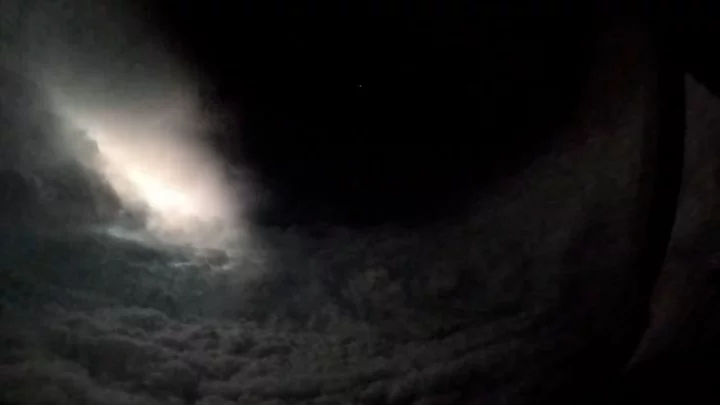
Storm chasers capture frightening footage from inside Hurricane Lee
Storm chasers filmed the inside of a hurricane and it looks just as terrifying as you might imagine it would. The footage taken from inside the eye of Hurricane Lee was captured on Friday (8 September) as the storm moved over the Atlantic Ocean. The video taken shows lightning striking inside the Category 4 hurricane, illuminating the cloud wall around it and with the black eye overhead. The stunning clip was captured by the U.S. Air Force Reserve's 53rd Weather Reconnaissance Squadron in Biloxi, Mississippi. They are affectionately known as the “Hurricane Hunters”. As a Category 4 storm, Hurricane Lee has sustained winds of between 130 to 156 mph. The storm was located off the coast of Puerto Rico and was forecast to move northwards. The footage was able to be captured thanks to the squadron’s WC-130J Hercules aircraft. These planes are specifically designed for flying weather reconnaissance and have equipment onboard including sensors and instruments to measure the profile of a hurricane’s wind, temperature and pressure. The Hercules aircraft can stay airborne for up to 18 hours ensuring the crew onboard can record the weather data over a long time period. In a statement released by the U.S. National Oceanic and Atmospheric Administration's (NOAA) National Hurricane Center, they were unable to determine what the impact of the storm might be on the country’s eastern coast yet. The statement read: “It remains too soon to know what level of impacts, if any, Lee might have along the U.S. East Coast and Atlantic Canada late this week.” Hurricane Lee is the fourth hurricane to be recorded during the 2023 Atlantic hurricane season, along with nine other named storms. Sign up to our free Indy100 weekly newsletter Have your say in our news democracy. Click the upvote icon at the top of the page to help raise this article through the indy100 rankings.
2023-09-11 23:23
